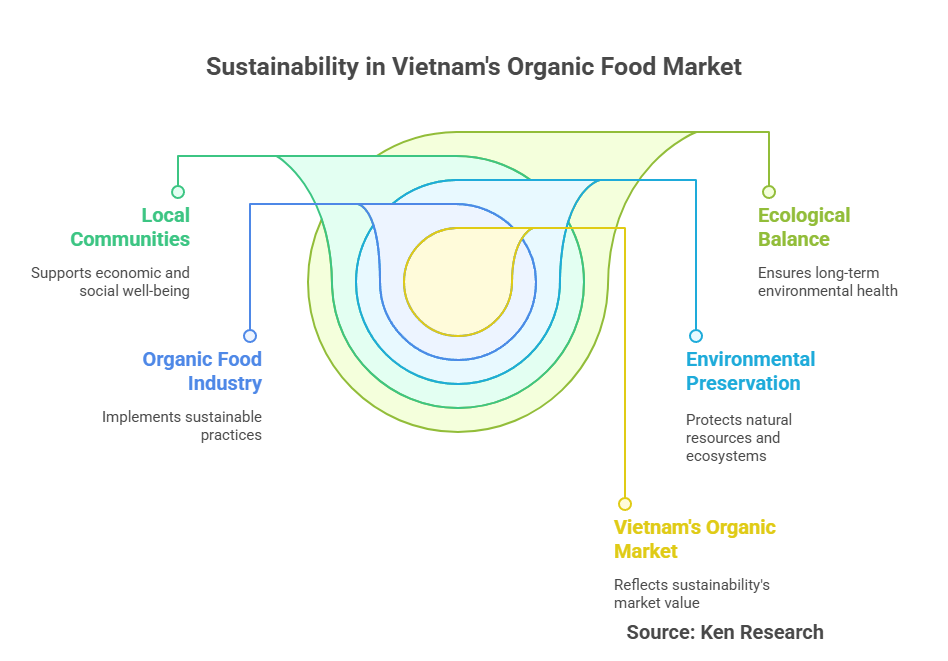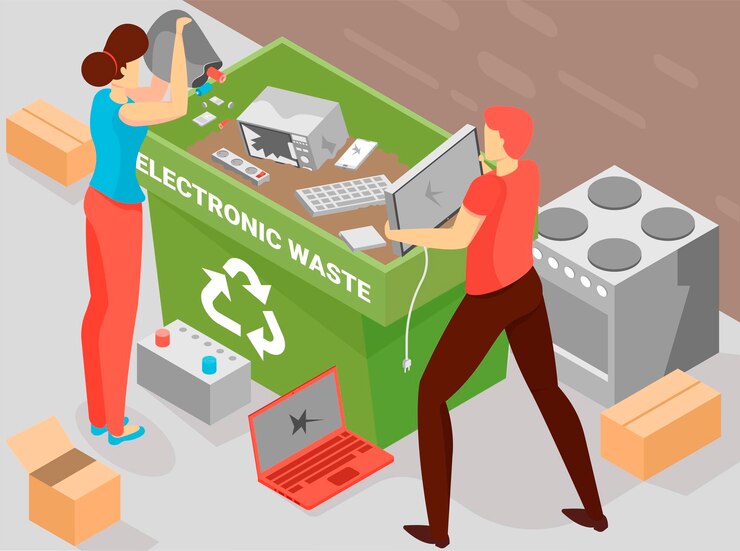Sustainability Trends in the Vietnam Organic Food Market- A Path Toward a Greener Future

Strong 8k brings an ultra-HD IPTV experience to your living room and your pocket.
Sustainability in the organic food industry refers to farming and production methods that preserve the environment, support local communities, and maintain long-term ecological balance. In Vietnam’s organic food market, now valued at USD 100 million, sustainability is rapidly becoming a top priority.
With increasing health awareness, environmental concerns, and rising demand for clean, chemical-free produce, Vietnamese consumers are turning to organic options that are also eco-friendly. Government support and policy incentives for organic farming are further encouraging the shift. As sustainability becomes a key pillar of Vietnam’s organic food industry, stakeholders are aligning their strategies to ensure a greener, healthier future.
Top Sustainability Drivers in the Vietnam Organic Food Market
- Rising Consumer Demand for Eco-Friendly Food: Urban Vietnamese consumers, especially millennials and Gen Z, are prioritizing food choices that support both personal health and environmental responsibility. This trend is accelerating the demand for sustainable organic food products.
- Government Incentives for Organic and Sustainable Agriculture: The Vietnamese government has launched various programs offering subsidies and technical support to promote organic farming and green practices. These initiatives lower the entry barriers for farmers and encourage adoption of eco-conscious methods.
- Compliance with Global Organic Standards: To boost exports and credibility, Vietnamese producers are aligning with international certifications like USDA Organic and EU Organic, which mandate sustainable farming, ethical sourcing, and traceable supply chains.
- Support from NGOs and Development Agencies: Collaborations with NGOs have introduced advanced sustainable farming techniques in rural regions. Projects across the Mekong Delta and Central Highlands serve as successful models of eco-conscious agricultural development.
Key Sustainable Trends in Vietnam’s Organic Food Industry
- Biodegradable and Plastic-Free Packaging: Producers are transitioning to eco-friendly packaging made from banana leaves, bamboo, and recycled paper. Companies like Organica and Bfarm have launched plastic-free product lines to appeal to sustainability-conscious consumers.
- Farm-to-Table and Localized Sourcing: The farm-to-table trend is minimizing carbon emissions and reducing waste in logistics. Brands such as EcoFarm offer subscription-based organic vegetable boxes, connecting consumers directly to local farms.
- Digital Traceability and Transparent Labeling: QR code-based tracking systems allow consumers to trace the origin of their food, reinforcing trust and authenticity. Transparent labeling helps meet the growing demand for clean-label, sustainable products.
- Water and Soil Conservation Techniques: Sustainable farming practices such as crop rotation, organic composting, and natural pest control are being adopted to enhance soil health and reduce pollution. These practices are essential for long-term environmental resilience.
- Community-Supported Agriculture (CSA) Initiatives: CSA models are gaining traction in cities like Hanoi and Ho Chi Minh City, enabling direct engagement between consumers and farmers. This not only reduces waste but also promotes shared responsibility for sustainable food systems.
Challenges to Achieving Sustainability in Vietnam’s Organic Sector
- High Production Costs: Organic and sustainable practices often involve higher labor, certification, and production costs, making products less affordable for the average consumer.
- Limited Farmer Education and Access to Technology: Many small-scale farmers lack knowledge or resources to adopt sustainable practices. Technical training and awareness remain inconsistent across regions.
- Inadequate Cold Chain and Logistics Infrastructure: Poor infrastructure leads to spoilage and inefficiency, undermining the benefits of sustainable production and affecting profitability.
- Lack of Regulation Enforcement: Without strict regulation of organic labeling and sustainability claims, greenwashing can erode consumer trust and harm genuinely sustainable brands.
Future Outlook: What’s Next for Sustainability in the Organic Food Market?
- Technology-Driven Organic Farming: The integration of IoT sensors, AI, and drone-based monitoring will improve resource efficiency, boost yields, and reduce environmental impact.
- Blockchain for Food Traceability: Blockchain solutions are expected to enhance transparency and trust in organic supply chains, especially for international markets.
- Sustainability Storytelling and Brand Differentiation: Brands that clearly communicate their environmental and social impact will gain a competitive edge in the increasingly eco-aware market.
- Stricter Policies and Mandatory Compliance: Regulations around sustainable farming and packaging are likely to become stricter, ensuring fair competition and protecting consumers from false claims.
Conclusion:
Sustainability is no longer a luxury—it’s a necessity in Vietnam’s evolving organic food market. From eco-packaging to local sourcing, the sector is undergoing a green transformation that benefits health, the environment, and the economy.
While challenges like high costs and knowledge gaps persist, Vietnam’s proactive policies, tech advancements, and rising consumer demand are paving the way for a more sustainable future. As the market grows, businesses that invest in sustainability today will shape the organic food landscape of tomorrow.
Note: IndiBlogHub features both user-submitted and editorial content. We do not verify third-party contributions. Read our Disclaimer and Privacy Policyfor details.







